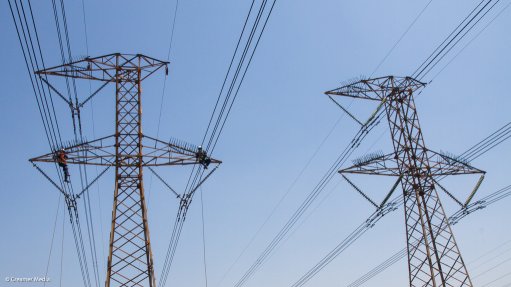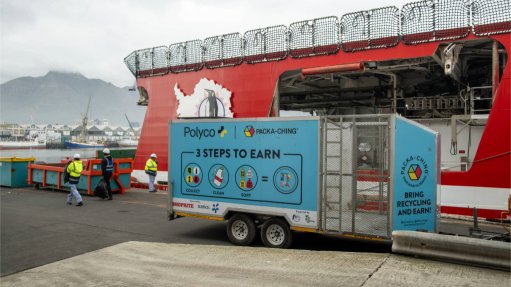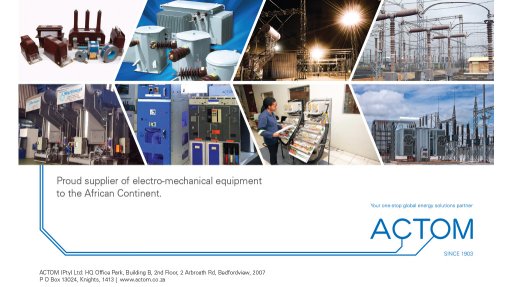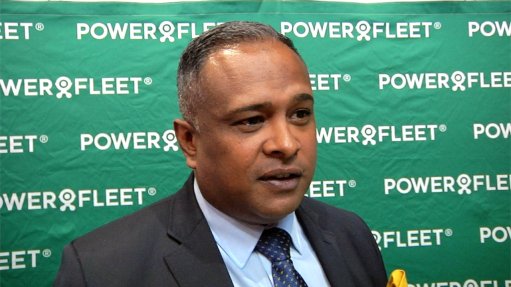Why Legal Certainty Must Anchor Africa’s Infrastructure Future
This article has been supplied and will be available for a limited time only on this website.
By: Claire Barclay - Partner, Pinsent Masons
The appetite for infrastructure investment across Africa is evident. Governments and the private sector are aligned in recognising the urgent need for roads, ports, energy systems, and digital infrastructure that can power inclusive economic growth. Yet, despite this shared vision, the pipeline of bankable, de-risked infrastructure projects still critically short of the need.
At the heart of this disconnect lies a simple truth: good policy is not enough. Legal certainty, consistency, and enforceability must be the bedrock of any long-term infrastructure investment strategy. When we talk about enabling environments, we must look beyond incentives or grand policy statements. Investors, particularly institutional capital, need confidence that the procurement process remains fair, equitable and transparent, that risks in the project documents are fairly allocated, that contracts are lawful and enforceable, and that disputes can be resolved using international forum that ensure impartiality and objectivity. That confidence is built on legal foundations.
A common pitfall we see in infrastructure projects is a misalignment of risk, particularly construction, political, and regulatory risks, between the public and private sectors. When these risks are not appropriately apportioned, with the private sector assuming risk that governments are better placed to manage, even strong projects can become expensive and unaffordable. Project documents that accord with market practice and its appetite for taking on various risks are crucial for bankability and long-term project sustainability.
There is a critical opportunity here for governments to introduce digitalised systems and practices that enable data sharing across a number ministries and government entities, and provide government officials with the ability to know what risks to consider in each of the processes of a project lifecycle and to have access to templates and precedents required to address a stage, or documentation evidencing how a particular matter was managed. With a robust system of data sharing such as the SOURCE system, a G20 sponsored tool being rolled out by the Sustainable Infrastructure Fund, governments will be in a better position to prepare their projects in accordance with legal and regulatory requirements and following a fair, transparent and equal procurement project.
While the above tools with empower governments to structure and management their own procurements, the reality is that many African governments are still migrating to a digitalised system and therefore benefits of data sharing and precedent bases are yet to be realised. The need for a multi-disciplinary team of transaction advisors, including experienced legal advisors that understand the process, the regulatory compliance requirements as well as a commercially feasible allocation of risks in the project documents remains crucial. Engaging advisors during project preparation also allows for early identification of structural issues, streamlines approvals, and ultimately enhances a project’s attractiveness to funders.
Another important step toward market certainty is contract standardisation. In the public-private partnership (PPP) space in particular, the absence of consistent legal templates creates uncertainty and erodes bidder confidence in the fairness of the process. Having market-tested, locally adapted contract structures can greatly support both public entities and lenders, reducing transaction times and improving investor buy-in.
There are positive shifts underway. The lack of available skills in public sector has given rise to specialised procurement units being established under Government ministries with financial support from the National Treasury and the Development Bank and Southern Africa. These specialist procurement units are responsible for rolling out procurement programmes in particular sectors. Examples include the IPP Office under the Department of Energy and Electricity which managed the procurement of the REIPPPP over 8 windows and will shortly be procurement transmission infrastructure as part of a procurement programme. The Water Partnerships Office which falls under the Department of Water and Sanitation is responsible for the roll out of six water procurement programmes as part of the National Water Procurement Programme, and the Private Sector Participation Unit in the Department of Transport has been mandated to introduce third party access and private sector concessions on core rail corridors owing to the unbundling of Transnet Freight Rail.
Governments are taking steps to source specialist legal capacity, especially within the above procurement and infrastructure units, to navigate complex project structures. While large procurement programmes are encouraging, we must acknowledge that access to specialist support and ongoing training remains scare within Government departments, particularly at the municipal level where many projects are initiated. More must be done to strengthen legal capabilities at all tiers of government.
What’s clear from the ongoing dialogue, including discussions at the DEVAC Infrastructure Summit is that the future of infrastructure in Africa depends not just on capital, but on trust from bidders and lenders both in terms of the process followed and the project documentation issued with the tender pack. Legal procurement processes that are predictable and, as well as project documents that have a balanced risk profile will be key to unlocking that trust.
While stakeholders across the continent increasingly view infrastructure as a catalyst for growth, the real challenge lies not in the vision itself, but in aligning that vision with legal and institutional readiness. If we can get this right, we will not only deliver projects faster and more efficiently, but also build an investment climate that is resilient, inclusive, and ready for the future.
Comments
Press Office
Announcements
What's On
Subscribe to improve your user experience...
Option 1 (equivalent of R125 a month):
Receive a weekly copy of Creamer Media's Engineering News & Mining Weekly magazine
(print copy for those in South Africa and e-magazine for those outside of South Africa)
Receive daily email newsletters
Access to full search results
Access archive of magazine back copies
Access to Projects in Progress
Access to ONE Research Report of your choice in PDF format
Option 2 (equivalent of R375 a month):
All benefits from Option 1
PLUS
Access to Creamer Media's Research Channel Africa for ALL Research Reports, in PDF format, on various industrial and mining sectors
including Electricity; Water; Energy Transition; Hydrogen; Roads, Rail and Ports; Coal; Gold; Platinum; Battery Metals; etc.
Already a subscriber?
Forgotten your password?
Receive weekly copy of Creamer Media's Engineering News & Mining Weekly magazine (print copy for those in South Africa and e-magazine for those outside of South Africa)
➕
Recieve daily email newsletters
➕
Access to full search results
➕
Access archive of magazine back copies
➕
Access to Projects in Progress
➕
Access to ONE Research Report of your choice in PDF format
RESEARCH CHANNEL AFRICA
R4500 (equivalent of R375 a month)
SUBSCRIBEAll benefits from Option 1
➕
Access to Creamer Media's Research Channel Africa for ALL Research Reports on various industrial and mining sectors, in PDF format, including on:
Electricity
➕
Water
➕
Energy Transition
➕
Hydrogen
➕
Roads, Rail and Ports
➕
Coal
➕
Gold
➕
Platinum
➕
Battery Metals
➕
etc.
Receive all benefits from Option 1 or Option 2 delivered to numerous people at your company
➕
Multiple User names and Passwords for simultaneous log-ins
➕
Intranet integration access to all in your organisation

















